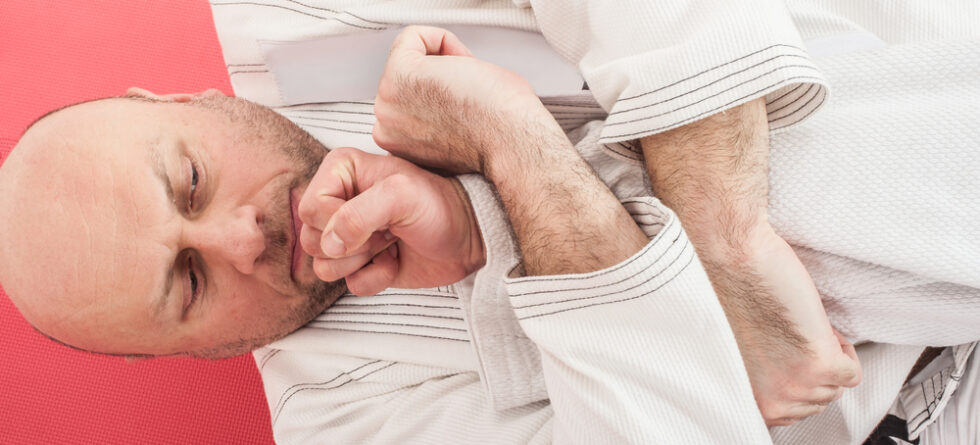Brazilian Jiu-Jitsu (BJJ) can be physically demanding and challenging on the body due to its dynamic and intense nature.
- Physical Contact – BJJ involves close physical contact with opponents, often resulting in grappling, joint manipulation, and submission holds. This can lead to strains, sprains, and bruises, particularly in areas such as the shoulders, elbows, knees, and neck.
- Joint Stress – Techniques such as joint locks and submissions put significant stress on the joints, particularly the elbows, shoulders, and knees. Over time, this can lead to wear and tear on the joint structures and increase the risk of injuries such as tendonitis or ligament strains.
- Impact – Despite being primarily ground-based, BJJ training may still involve impacts from throws, takedowns, or accidental collisions with training partners, which can cause acute injuries such as contusions, fractures, or concussions.
- Muscle Fatigue – BJJ requires significant muscular endurance, particularly in the core, legs, and upper body, as practitioners constantly engage in pushing, pulling, and stabilizing movements. This can lead to muscle fatigue and soreness, especially during intense training sessions or competitions.
- Spinal Compression – Techniques that involve bending, twisting, or arching the spine, such as bridging or maintaining certain guards, can exert compression forces on the spinal discs and surrounding structures, potentially leading to back pain or discomfort.
- Overuse Injuries – Repetitive movements and training drills in BJJ can contribute to overuse injuries, such as tendonitis or muscle strains, particularly in areas subjected to frequent stress, such as the wrists, fingers, and hips.
Despite these challenges, many practitioners find BJJ immensely rewarding and beneficial for overall fitness, mental well-being, and self-defense skills. To minimize the strain on the body and reduce the risk of injuries, it’s necessary to practice proper technique, listen to your body, warm up adequately before training, and incorporate rest and recovery into your routine. Also, seeking guidance from qualified instructors and gradually progressing in intensity and difficulty can help ensure a safe and enjoyable BJJ experience.



